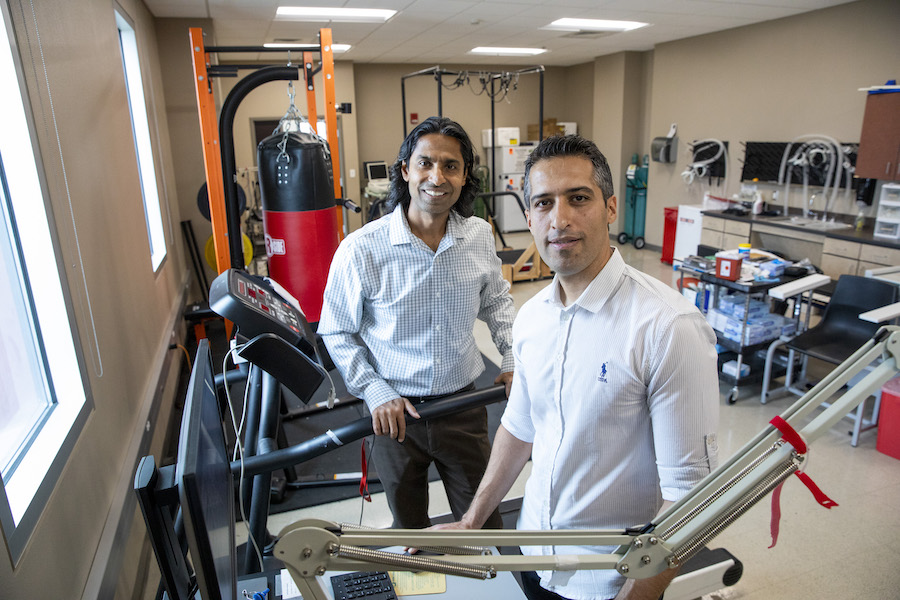
UTEP Study Finds that Hispanic Patients with Unmanaged Diabetes are at Greater Risk for COVID-19 Severity
Last Updated on June 28, 2021 at 12:00 AM
Originally published June 28, 2021
By UC Staff
UTEP Communications
EL PASO, Texas – A multidisciplinary study led by researchers at The University of Texas at El Paso has found that unmanaged diabetes in Hispanic populations is a key factor in COVID-19 severity and complications.

The retrospective study was led by Sudip Bajpeyi, Ph.D., UTEP associate professor of kinesiology and director of the Metabolic Nutrition and Exercise Research (MiNER) laboratory. Ali Mossayebi, a graduate kinesiology student at UTEP, presented the study’s findings Friday, June 25, 2021, at the virtual 81st Scientific Sessions of the American Diabetes Association (ADA).
“Our study has significant impact in this region, which has a high Hispanic population and a greater risk for developing diabetes,” Bajpeyi said. “Many Hispanics in this region are also undiagnosed and may not know their diabetes status. Engaging the community to learn about diabetes and the importance of managing blood glucose should be considered as a priority to manage and treat COVID-19 severity.”
The study also involved faculty from UTEP’s public health, social work and mathematics departments as well as Texas Tech University Health Sciences Center El Paso and University Medical Center.
Researchers used medical records from 369 patients admitted to University Medical Center with COVID-19 to determine the impact of unmanaged diabetes in a predominately Hispanic population. Hispanics are 2.4 times more likely to die of COVID-19 and 50% more likely to have diabetes than white Americans.
Researchers found that patients with diabetes who were not taking medication experienced longer hospitalization and recovery times. Patients with unmanaged diabetes had significantly greater severity of COVID-19 based on quick sepsis-related organ failure assessment (qSOFA) and length of hospitalization compared with patients who reportedly managed diabetes with medication. Moreover, patients with lower blood sugar (blood glucose) levels had lesser severity and shorter hospital stays.
Bajpeyi said the study’s results highlight the importance of assessing, monitoring and managing blood glucose in hospitalized COVID-19 patients from the start, specifically for vulnerable populations already at risk of other medical conditions.
Forty percent of Americans who have died of COVID-19 have had diabetes, and one in 10 people with diabetes hospitalized for COVID-19 die within one week – making diabetes a high-risk comorbidity. When left untreated, diabetes can lead to increased overall health complications. Yet, nearly one in five Americans with diabetes report that, due to the increased financial constraints of the pandemic, they had to choose between buying food or buying medications and medical supplies required to manage their diabetes.
About The University of Texas at El Paso
The University of Texas at El Paso is America’s leading Hispanic-serving university. Located at the westernmost tip of Texas, where three states and two countries converge along the Rio Grande, 94% of our nearly 25,000 students are minorities, and half are the first in their families to go to college. UTEP offers 168 bachelor’s, master’s and doctoral degree programs at the only open-access, top tier research university in America.
